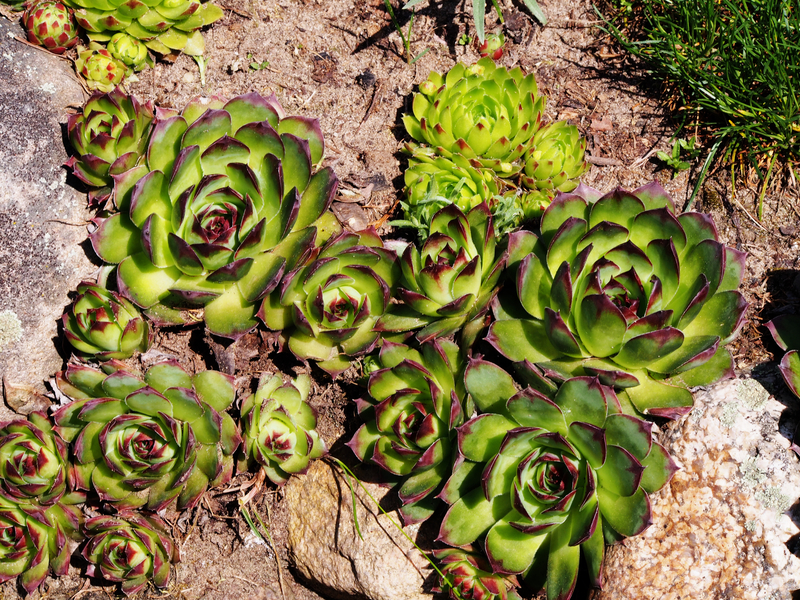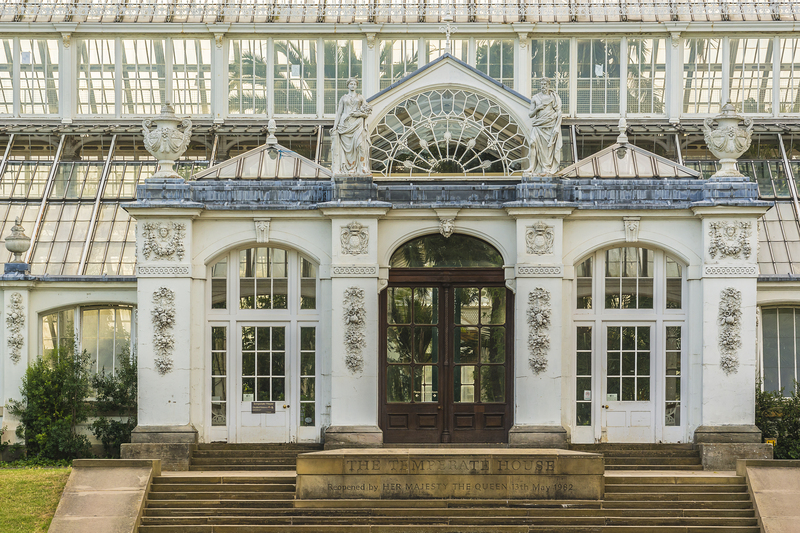Kickstart your garden adventure with these 9 must-know tips
Posted on 01/06/2025
Kickstart Your Garden Adventure with These 9 Must-Know Tips
Are you eager to kickstart your garden journey but unsure where to begin? Whether you're a beginner or returning to urban gardening after a break, setting up your green space can seem overwhelming. Fear not! With a little guidance, you can cultivate a beautiful and thriving garden. This comprehensive guide will help you start your garden adventure with confidence and success. Read on for nine garden tips that will set you on the path to becoming a green-thumbed guru.

1. Choose the Perfect Spot for Your First Garden
The foundation of all thriving gardens is location. Where you plant matters! To start your gardening adventure right, consider these points when choosing your garden site:
- Sunlight: Most vegetables and flowers need at least 6-8 hours of direct sunlight per day. Observe your yard or balcony to find spots that receive the most light.
- Soil: Healthy, well-drained soil is essential. Avoid areas where water collects after rain.
- Accessibility: Place your garden where it's easy to reach for watering, weeding, and harvesting. The more convenient, the more likely you'll keep up with garden maintenance.
- Protection: If possible, position your raised beds or pots where they're sheltered from strong winds but not hidden from the sun.
2. Test and Improve Your Soil
Healthy soil equals healthy plants. Before sowing your first seeds, test your garden's earth. Professional soil kits are available at most garden centers, or you can send samples to local cooperative extension services. Testing reveals pH and nutrient levels, helping you understand what your soil needs. Apply these tips to start your gardening experience right:
- Add Organic Matter: Incorporate compost, manure, or leaf mold to enrich poor soil with nutrients.
- Avoid Over-Tilling: Too much digging can harm beneficial organisms. Turn it gently to mix in organic material.
- Adjust pH: Most plants thrive in slightly acidic to neutral soil (pH 6.0-7.0). Amend as recommended by your soil test results.
3. Select the Right Plants for Your Climate and Space
One of the key must-know gardening tips is plant selection. Picking the right crops for your growing zone and available space is crucial. To jumpstart your gardening journey, consider the following:
- Climate Suitability: Choose plants that thrive in your USDA hardiness zone. Consult the back of seed packets or ask at your local nursery.
- Space: Consider container gardening if you lack ground space. Many vegetables and herbs grow well in pots.
- Personal Preferences: Grow what you love to eat or admire. Herbs, salad greens, tomatoes, and native flowers are excellent starters.
- Beginner Ease: Start with forgiving, easy-to-grow plants like radishes, lettuce, marigolds, and sunflowers.
4. Invest in Quality Tools--but Don't Overdo It
A few well-chosen tools will kickstart your gardening adventure more efficiently than a heap of unused gadgets. Begin with the garden basics:
- Trowel: Essential for planting and transplanting.
- Pruners: Necessary for keeping plants tidy and harvesting.
- Gloves: Protect your hands from thorns and dirt.
- Watering Can or Hose: Ensure your plants never go thirsty.
- Soil Rake: Handy for smoothing the soil and removing debris.
As your garden adventure progresses, upgrade or expand your toolkit as needed. Always purchase the best quality you can afford--well-maintained tools make gardening more enjoyable and efficient.
5. Learn the Basics of Watering
Water is life--especially in the garden. Both overwatering and underwatering can harm your plants, so mastering the art of watering is a critical gardening tip:
- Early Morning: Water your plants early to reduce evaporation and help resist disease.
- Deep Soaking: Water deeply at the base of plants rather than giving them a daily surface sprinkle. Deep watering encourages strong root development.
- Consistent Schedule: Try to maintain a regular routine, observing your plants for any signs of thirst or stress.
- Mulch: Adding mulch helps retain moisture in the soil and reduces how often you need to water.
6. Mulch for Moisture, Weed Control, and Soil Fertility
If you want to kickstart your gardening success, mulch is a gardener's best friend. It insulates soil, retains moisture, and suppresses weeds. Here's how to make mulching work for you:
- Organic Mulch: Use straw, wood chips, grass clippings, or shredded leaves. As they break down, they also enrich your soil.
- Weed Barrier: Apply a 2-3 inch layer around your plants (but not right up against the stems) to smother weeds and keep soil temperatures stable.
- Seasonal Mulch: Refresh your mulch every season or after heavy rain to maximize its benefits.
7. Get to Know Good Bugs and Bad Bugs
Not all bugs are the enemy! In fact, some insects are essential for a healthy and productive garden. To kickstart your garden journey successfully, learn to spot the difference:
- Beneficial Insects: Ladybugs, lacewings, bees, and spiders help pollinate plants and control pests.
- Common Pests: Aphids, beetles, slugs, and cabbage worms can harm your plants.
- Natural Controls: Attract beneficial bugs with diverse, pollen-rich flowers. Use row covers, handpicking, or organic sprays as a last resort.
Understanding your garden's ecosystem allows you to maintain balance naturally, reducing the need for chemicals.
8. Start a Compost Pile for Sustainable Soil Health
Composting is a cornerstone habit for any serious gardener. It converts kitchen scraps and yard waste into nutrient-rich soil conditioner. Here's how you kickstart your composting journey:
- Pick Your Spot: Choose a dry, shaded location near a water source for your compost pile or bin.
- Add Greens & Browns: Balance "green" materials (fruit and vegetable scraps, coffee grounds, grass clippings) with "browns" (dead leaves, twigs, cardboard).
- Turn Regularly: Aerate your compost with a pitchfork once a week for speedy decomposition.
- Maintain Slight Moisture: Compost should feel like a wrung-out sponge--not too wet or dry.
In a few months, you'll have black gold to enrich your garden beds and boost plant growth the natural way!
9. Practice Patience and Stay Observant
A thriving garden isn't grown in a day. Patience is the ultimate gardening tip. Plants grow at their own pace, and every season teaches new lessons. Here's how to cultivate your gardening mindset:
- Observation: Take time daily or weekly to look closely at your plants. Early detection of problems leads to better outcomes.
- Journal: Keep notes on what you plant, the weather, success stories, and challenges. These records are invaluable for future gardening adventures.
- Learn from Mistakes: Every gardener experiences setbacks. Embrace them as opportunities to learn and improve.
- Celebrate Small Victories: Whether it's your first seedling sprouting or a bumper harvest, recognize your progress and enjoy the journey.
Bonus Tip: Connect with the Gardening Community
Your journey is richer when shared! Whether online or at your local community garden, connecting with other gardeners is a great way to exchange must-know gardening tips, swap seeds, and gain inspiration. Join gardening forums, follow local experts on social media, or volunteer at a plant swap event to kickstart your gardening adventure in good company.
Why Now is the Perfect Time to Kickstart Your Garden Adventure
Gardening transforms spaces, boosts well-being, and brings fresh flavors right to your table. With rising interest in sustainability and homegrown produce, there has never been a better moment to start your first garden. The lessons you learn will blossom every season, yielding rewards for years to come.

Key Takeaways to Begin Your Garden Journey Today
- Pick the best garden site with top sunlight and healthy soil.
- Test and enrich your soil for vibrant plant health.
- Choose climate-adapted, beginner-friendly plants that excite you.
- Invest in quality tools to make gardening a breeze.
- Master watering and mulching for resilient, well-fed plants.
- Encourage good bugs, learn natural pest control, and compost for ongoing soil fertility.
- Embrace patience and learn something new with every gardening season.
Frequently Asked Questions about Starting a Garden Adventure
- How much time do I need to maintain a beginner garden?
Set aside 15-30 minutes a day or a couple of hours per week, depending on your garden's size and needs. - Can I start a garden with limited outdoor space?
Absolutely! Container gardening and vertical gardening are perfect options for balconies or small patios. - What if I don't have access to compost materials?
Many garden centers sell high-quality compost. You can also join local composting co-ops or community gardens for organic resources. - How do I know if I'm overwatering or underwatering?
Stick your finger one inch into the soil--if it's dry, water your plants. If it's damp, wait another day. Many plants will also wilt when thirsty or show yellowing leaves if overwatered.
Ready, Set, Grow!
Starting your garden doesn't need to be complicated. With these nine essential tips, you can kickstart your gardening adventure and watch your efforts blossom. Remember, every great gardener started as a beginner--curious and willing to learn. What will you plant first? Let your adventure begin!
```Latest Posts
Revamp Your Yard with Budget Low Maintenance Garden Plans
Guarding Your Green Oasis Against Weather Havoc
Fostering Nature Exploration with a Child-Friendly Garden

